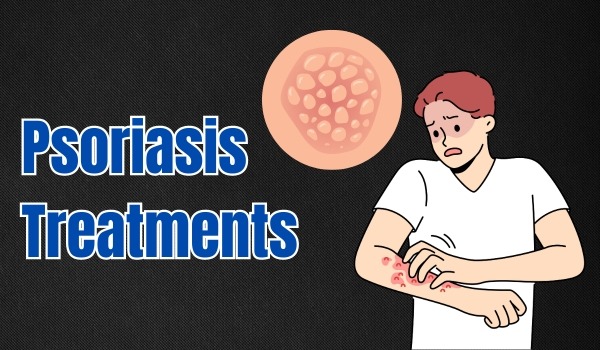Comprehensive Guide to Psoriasis Treatments at Dermacore Clinic, Lucknow


Psoriasis is a chronic skin condition characterized by red, itchy, and scaly patches. It can be a challenging condition to manage, but with the right treatments, individuals can achieve significant relief and improvement in their quality of life. Dermacore Clinic in Lucknow is at the forefront of providing advanced and effective psoriasis treatments. This article explores the various psoriasis treatments available at Dermacore Clinic and how they can help you manage this condition effectively.
Understanding Psoriasis
Psoriasis is an autoimmune disease that speeds up the growth cycle of skin cells. Normally, skin cells grow deep in the skin and slowly rise to the surface, eventually falling off. This process typically takes about a month. In psoriasis, it can happen in just a few days, causing cells to build up rapidly on the surface of the skin. The result is the characteristic thick, scaly patches known as plaques.
Common Symptoms:
Red patches of skin covered with thick, silvery scales
Dry, cracked skin that may bleed
Itching, burning, or soreness
Thickened or ridged nails
Swollen and stiff joints
Psoriasis Treatments at Dermacore Clinic
Dermacore Clinic offers a comprehensive range of treatments tailored to manage psoriasis effectively. The clinic employs a multidisciplinary approach, combining the expertise of dermatologists, immunologists, and other healthcare professionals to deliver personalized care. Here are some of the key treatments provided:
1. Topical Treatments
Topical treatments are often the first line of defense in managing psoriasis. They involve applying medications directly to the skin.
Corticosteroids: These anti-inflammatory drugs are commonly prescribed to reduce inflammation and slow down skin cell turnover.
Vitamin D Analogues: These synthetic forms of vitamin D can slow skin cell growth.
Retinoids: These compounds, related to vitamin A, help normalize DNA activity in skin cells and reduce inflammation.
Calcineurin Inhibitors: These medications reduce inflammation and plaque buildup, particularly effective for sensitive areas such as the face and folds of skin.
Salicylic Acid: This peeling agent helps remove scales and smooth the skin.
2. Phototherapy
Phototherapy, or light therapy, involves exposing the skin to ultraviolet light under medical supervision.
UVB Therapy: This treatment uses UVB light, either in a narrowband or broadband form, to slow skin cell growth.
PUVA Therapy: Combines UVA light with a psoralen drug to enhance the effectiveness of the light therapy.
Excimer Laser: This laser targets specific areas of the skin, delivering high doses of UVB light to localized plaques.
3. Systemic Treatments
For moderate to severe psoriasis, systemic treatments might be necessary. These are oral or injected medications that affect the entire body.
Methotrexate: This drug reduces the production of skin cells and suppresses inflammation.
Cyclosporine: An immunosuppressant that slows down the rapid skin cell turnover.
Biologics: These are advanced drugs that target specific parts of the immune system. Examples include adalimumab, etanercept, and ustekinumab.
Acitretin: An oral retinoid used for severe psoriasis, especially pustular psoriasis.
4. Innovative Therapies
Dermacore Clinic stays at the forefront of dermatological innovations, offering cutting-edge treatments.
Biosimilars: These are new versions of biologic drugs that provide similar results at potentially lower costs.
JAK Inhibitors: These new oral medications target specific pathways in the immune system to reduce inflammation and plaque formation.
5. Complementary and Alternative Treatments
To provide holistic care, Dermacore Clinic also incorporates complementary treatments.
Moisturizers and Emollients: Keeping the skin hydrated is crucial in managing psoriasis. Specialized moisturizers help reduce itching and scaling.
Diet and Nutrition Counseling: Certain dietary changes and supplements can help manage psoriasis symptoms.
Stress Management Techniques: Stress is a known trigger for psoriasis flare-ups. The clinic offers counseling and stress-reduction techniques such as yoga and meditation.
Personalized Care Approach
At Dermacore Clinic, the treatment plan for psoriasis is highly personalized. The dermatologists conduct a thorough evaluation of each patient, considering the severity of the condition, the type of psoriasis, the patient’s medical history, and lifestyle factors. This comprehensive assessment ensures that the most effective and suitable treatment options are selected.
Regular Follow-ups and Monitoring
Psoriasis is a chronic condition that requires ongoing management. Dermacore Clinic emphasizes the importance of regular follow-ups to monitor progress, adjust treatments as necessary, and address any new symptoms or concerns. This proactive approach helps in achieving long-term control over the condition.
Conclusion
Managing psoriasis can be challenging, but with the advanced treatments and personalized care available at Dermacore Clinic in Lucknow, patients can find significant relief and lead a more comfortable life. If you or someone you know is struggling with psoriasis, consider visiting Dermacore Clinic to explore the best treatment options tailored to your needs. With a team of experienced dermatologists and a comprehensive approach to care, Dermacore Clinic is dedicated to helping you achieve healthier, clearer skin.

Contact Us
Dermacore
3/285, Vivek Khand, Near Neelkanth Sweets, Gomti Nagar, Lucknow, 226010-U.P.
☏ 6386858427, 7607999766
✉ support@dermacore.in
